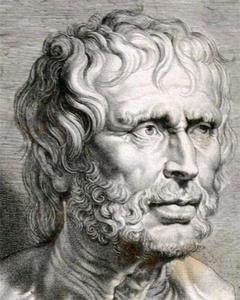196 Quotes
"Without a large enough user base, a new platform can’t attract developers to build on top of it. As a result, new competitors also lack the ecosystem of add-ons to meet all the needs of and attract users. This is why platforms are so enduring."
— Kevin Kwok
How to Eat an Elephant, One Atomic Concept at a Time - kwokchain"The need for their tools to have a higher-level understanding of the components and variants became more important."
— Kevin Kwok
How to Eat an Elephant, One Atomic Concept at a Time - kwokchain"Another source is when the customers themselves change. Often the function of a tool remains the same, but the type of user changes. These new types of customers often have different things they care about and resulting product needs."
— Kevin Kwok
How to Eat an Elephant, One Atomic Concept at a Time - kwokchain"The opportunity for these new atomic concepts to thrive is driven by the new use cases and types of users unearthed during market transitions."
— Kevin Kwok
How to Eat an Elephant, One Atomic Concept at a Time - kwokchain"Changing customer needs are the largest source of entropy in markets. When customer needs rapidly change, there is less advantage in being an incumbent. Instead, legacy companies are left with all the overhead and a product that no longer is what customers want."
— Kevin Kwok
How to Eat an Elephant, One Atomic Concept at a Time - kwokchain"Companies resist changing core parts of their product for every new use case since it’s costly in work, money, and attention. But every once in a while, what was once a small use case grows into one large enough to support its own company."
— Kevin Kwok
How to Eat an Elephant, One Atomic Concept at a Time - kwokchain"Vectors are more important than raster graphics. The complexity and process of designing these high-value designs also got increasingly more sophisticated."
— Kevin Kwok
How to Eat an Elephant, One Atomic Concept at a Time - kwokchain"They just have a very specific thing they want to create, with the least friction possible."
— Kevin Kwok
How to Eat an Elephant, One Atomic Concept at a Time - kwokchain"The best products map to how customers think about their workflow. They match the abstraction level of their customers: not too high that it’s unusable, but not too low that it’s hard to use easily or extend in more complex ways."
— Kevin Kwok
How to Eat an Elephant, One Atomic Concept at a Time - kwokchain"Figma builds on Sketch’s approach, but also includes a greater focus on not just projects but the entire collaborative process as the relevant scope."
— Kevin Kwok
How to Eat an Elephant, One Atomic Concept at a Time - kwokchain"Canva’s core atomic concepts are around the different templates and components to help them easily accomplish the job they are doing."
— Kevin Kwok
How to Eat an Elephant, One Atomic Concept at a Time - kwokchain"Emergent use cases and new customer types lead to new ideal atomic concepts. These new workflows and different customers have different priorities than existing customers."
— Kevin Kwok
How to Eat an Elephant, One Atomic Concept at a Time - kwokchain"it is actually the changed atomic concepts that are what make startups a compelling contender against incumbents in the space."
— Kevin Kwok
How to Eat an Elephant, One Atomic Concept at a Time - kwokchain"Every move to prepare Blockbuster’s core for a digital future was resisted by execs who generated more revenue, store operators who were livid at being cut out, and Wall Street investors uncomfortable with turning a consistent business into a high risk venture."
— Kevin Kwok
How to Eat an Elephant, One Atomic Concept at a Time - kwokchain"Building out the product to enable collaboration uniquely was key to these designers. Doing this was non-trivial. The technical challenges to do so were very hard, though Figma was well set up due to Evan Wallace’s technical prowess and specific knowledge in new technologies like WebGL. Building for collaboration to its fullest extent has led Figma to rethink almost all of the company—leading to new pricing models, distribution models, and sharing form factors."
— Kevin Kwok
How to Eat an Elephant, One Atomic Concept at a Time - kwokchain"Canva’s lightweight editing with easy templates and process for making many small changes like formatting for different social platforms made it ideal for these customers."
— Kevin Kwok
How to Eat an Elephant, One Atomic Concept at a Time - kwokchain"Canva having this strong ecosystem of add-ons is very powerful. Add-ons allow Canva to address the huge scale and varied needs of all its customers, far more than one company could ever do on its own. This makes it possible for each customer to use Canva in a way that will be personalized for exactly the use case and aesthetic they care about."
— Kevin Kwok
How to Eat an Elephant, One Atomic Concept at a Time - kwokchain"Treating these marketplaces as first parties has a number of additional benefits. Beyond increasing the value of the product, it also cements platform network effects for Canva."
— Kevin Kwok
How to Eat an Elephant, One Atomic Concept at a Time - kwokchain"Companies have trouble navigating these questions because customers themselves don’t think precisely about what they really want."
— Kevin Kwok
How to Eat an Elephant, One Atomic Concept at a Time - kwokchain"The best companies introduce better atomic concepts and help push their customers forward."
— Kevin Kwok
How to Eat an Elephant, One Atomic Concept at a Time - kwokchain"An ecosystem also creates both defensibility and extensibility for Figma."
— Kevin Kwok
How to Eat an Elephant, One Atomic Concept at a Time - kwokchain"Going multi-product or becoming a platform is the key to compounding into significantly more meaningful companies."
— Kevin Kwok
How to Eat an Elephant, One Atomic Concept at a Time - kwokchain"As a founder, nobody is going to understand the full nuance of your company like you will. Everyone else does see a simplified, compressed, and sadly imperfect shadow of your company. Founders repeatedly underestimate the degree to which their products are complex and opaque to outsiders, because they have it fully loaded in cache. They have seen every iteration and revision and imagined in painful detail all the alternate lives their product could have lived."
— Kevin Kwok
How to Eat an Elephant, One Atomic Concept at a Time - kwokchain"They often only understand half of how your product can be used, much less your vision for how it should be used as it matures. And your future potential users don’t even know you exist."
— Kevin Kwok
How to Eat an Elephant, One Atomic Concept at a Time - kwokchain"This clarity is not just for users. It’s even more important for employees. They are the people who build complex compounds around these atomic concepts, and their misunderstandings are the root of future deviations and issues that arise."
— Kevin Kwok
How to Eat an Elephant, One Atomic Concept at a Time - kwokchain"Repetition may help employees remember what’s important, but it pales in comparison to the clarity that comes from having strong atomic concepts to begin with. Like memes, simplicity is what makes them so transmissible."
— Kevin Kwok
How to Eat an Elephant, One Atomic Concept at a Time - kwokchain"It’s essential for founders and companies themselves to regularly do this refactoring. Just as companies build up technical debt, so too do they build up narrative debt."
— Kevin Kwok
How to Eat an Elephant, One Atomic Concept at a Time - kwokchain"Strong enough products will have ecosystems around them whether or not the companies actively manage it. The best companies don’t just benefit from these ecosystems, they build their platforms to enable and direct these ecosystems in ways that empower their customers more."
— Kevin Kwok
How to Eat an Elephant, One Atomic Concept at a Time - kwokchain"it’s the clarity of a company’s product and product—and founder—driven distribution that become most key."
— Kevin Kwok
How to Eat an Elephant, One Atomic Concept at a Time - kwokchain"by making it easy for individuals or companies to build their own plugins, Figma hopes to see even these be addressed—and then shared out with the community in the way we see it often in the open source developer ecosystem."
— Kevin Kwok
How to Eat an Elephant, One Atomic Concept at a Time - kwokchain"Great atomic concepts are honed and then extended and built upon in more complex compounds that…well for lack of a better word…compound."
— Kevin Kwok
How to Eat an Elephant, One Atomic Concept at a Time - kwokchain"Atomic concepts are fundamentally linked to the core loops of a company."
— Kevin Kwok
How to Eat an Elephant, One Atomic Concept at a Time - kwokchain"Barton is a strong contender for the title of best consumer tech founder because of his repeated success. He’s founded three consumer companies each worth over a billion dollars with Expedia ($18.6B), Zillow ($8.8B), and Glassdoor (Said to have been acquired for $1.6B)."
— Kevin Kwok
Making Uncommon Knowledge Common - kwokchain"The Consumer tech sector, however, remains dark magic. The playbooks are far less developed—and no one’s playbook has demonstrated the repeatability of Rich Barton’s."
— Kevin Kwok
Making Uncommon Knowledge Common - kwokchain"while some of Rich Barton’s techniques are commonly understood, his core strategy to catalyze his compounding loops is not."
— Kevin Kwok
Making Uncommon Knowledge Common - kwokchain"The Rich Barton Playbook is building Data Content Loops to disintermediate incumbents and dominate Search. And then using this traction to own demand in their industries."
— Kevin Kwok
Making Uncommon Knowledge Common - kwokchain"In order to grow their demand high enough to become a beneficial flywheel, Barton’s companies use a Data Content Loop to bootstrap their demand and create unique content and index an industry online (homes for Zillow, hotels and flights for Expedia, companies for Glassdoor)."
— Kevin Kwok
Making Uncommon Knowledge Common - kwokchain"“Power to the People”. His companies take power from the incumbents and give it to consumers. Instead of trying to hoard information, they are on the side of consumers and giving them more data transparency."
— Kevin Kwok
Making Uncommon Knowledge Common - kwokchain"Rich Barton took these whispered conversations and made them public for everyone to see. Afterwards, everyone wondered why they were ever private."
— Kevin Kwok
Making Uncommon Knowledge Common - kwokchain"Many incumbents are able to intermediate their markets and unfairly gain an edge from people’s lack of knowledge. And it’s scary to be the first to buck this trend on your own."
— Kevin Kwok
Making Uncommon Knowledge Common - kwokchain"Creating common knowledge creates a network effect."
— Kevin Kwok
Making Uncommon Knowledge Common - kwokchain"The more people use and trust Glassdoor, the more companies must take it seriously. And as users see more people contributing to Glassdoor, they can be more confident they’ll stay anonymous when they add their review. There are virtuous loops in common knowledge."
— Kevin Kwok
Making Uncommon Knowledge Common - kwokchain"All of Rich Barton’s companies have primarily used Search (and word of mouth) as their acquisition channel. Search is a great channel, since it can drive significant demand at low cost."
— Kevin Kwok
Making Uncommon Knowledge Common - kwokchain"If you had the top spot in search, the next best thing was to acquire more sites so you owned the next top result, and so on."
— Kevin Kwok
Making Uncommon Knowledge Common - kwokchain"If you look at the sources of traffic for Barton’s companies, the vast majority of their traffic comes from search or direct. This makes their user acquisition far cheaper than any company that relies primarily on paid acquisition."
— Kevin Kwok
Making Uncommon Knowledge Common - kwokchain"The ultimate purpose of the “Data Content Loops + SEO” strategy of Barton’s companies is to own the demand side of an industry."
— Kevin Kwok
Making Uncommon Knowledge Common - kwokchain"Owning demand ultimately becomes its own compounding loop since becoming a trusted brand builds its own network effects. Consistently building this reputation increases people’s trust in them and makes them a go to destination."
— Kevin Kwok
Making Uncommon Knowledge Common - kwokchain"Within the first day of launching, Zillow had a million people trying to check out the Zestimate."
— Kevin Kwok
Making Uncommon Knowledge Common - kwokchain"The Zestimate also had the network effect of becoming public common knowledge. It gave power to the people, and offered leverage against brokers."
— Kevin Kwok
Making Uncommon Knowledge Common - kwokchain"if tens of millions of people are using Zillow and it tells you your house is worth $1 million dollars, the broker may still disagree but they have to take it seriously. Thus this data content loop has a demand side network effect that strengthens with scale."
— Kevin Kwok
Making Uncommon Knowledge Common - kwokchain"While many of Barton’s ideas–like owning demand–have become mainstream, his use of data content loops to catalyze demand for his companies is still underappreciated."
— Kevin Kwok
Making Uncommon Knowledge Common - kwokchain"Designs in Figma are not just stored in the cloud; they are edited in the cloud, too. This means that Figma users are always working on the same design. With Dropbox, this isn’t true."
— Kevin Kwok
Why Figma Wins - kwokchain"the fundamental user experience of creating in their products is done via a standalone app on the desktop. Figma is browser-first, which was made possible (and more importantly performant) by their understanding and usage of new technologies like WebGL, Operational Transforms, and CRDTs."
— Kevin Kwok
Why Figma Wins - kwokchain"Designers loved Figma and this drew initial distribution. And with features like team libraries, designers have incentive to pull in other designers on their team into Figma."
— Kevin Kwok
Why Figma Wins - kwokchain"While Figma has been building the ideal tool for designers, they’ve actually built something more important: a way for non-designers to be involved in the design process."
— Kevin Kwok
Why Figma Wins - kwokchain"There used to be lots of experimentation and customization around individual features like typesetting. But once this was good enough, the focus has shifted towards collaboration. And for most use cases, few care about typesetting today. Increasingly our tools must understand and align with how we collaborate. This was less important when collaboration was logistically difficult and prohibitively costly, but as collaboration becomes easier its importance has risen."
— Kevin Kwok
Why Figma Wins - kwokchain"Architecting Figma to be truly browser-first, instead of just having storage be in the cloud Their head start in new technologies like WebGL and CRDTs that made this browser-first approach possible Focusing on a product purpose built for those designing vector based digital products"
— Kevin Kwok
Why Figma Wins - kwokchain"Figma was quick to recognize that the constraints on design at companies is often not a problem of pixels, but of people. Many of Figma’s competitors are great tools for designers. But that’s who they are for—designers. Figma is a tool for teams to design. Not for designers alone."
— Kevin Kwok
Why Figma Wins - kwokchain"Figma’s cross-side network effect between designers and non-designers is one of the primary and under-appreciated sources of their compounding success over the last few years."
— Kevin Kwok
Why Figma Wins - kwokchain"The core of Figma’s product is the core of its distribution loop. That is incredibly rare and powerful. True alignment between product and core distribution loops is what’s needed to catalyze outlier ability to compound in growth."
— Kevin Kwok
Why Figma Wins - kwokchain"The real power of plugins, however, is in making them publicly available across the ecosystem. Plugins are collective progress available to all users."
— Kevin Kwok
Why Figma Wins - kwokchain"But Figma’s true potential is if it can make the transition to becoming a platform. If Figma can, they’ll push progress in design as a discipline."
— Kevin Kwok
Why Figma Wins - kwokchain"While it’s possible to stumble into an initial core loop that works, the companies that are successful in the long term are the ones that can repeatedly find the next loop."
— Kevin Kwok
Why Figma Wins - kwokchain"The core insight of Figma is that design is larger than just designers."
— Kevin Kwok
Why Figma Wins - kwokchain"Building for everyone in the design process and not just designers is also the foundation of Figma’s core loop, which drives their growth and compounding scale."
— Kevin Kwok
Why Figma Wins - kwokchain"Focusing on a product purpose built for those designing vector based digital products"
— Kevin Kwok
Why Figma Wins - kwokchain"Architecting Figma to be truly browser-first, instead of just having storage be in the cloud"
— Kevin Kwok
Why Figma Wins - kwokchain"There are limits to Figma’s success if it remains only valued and spread within companies. In order to break through that asymptote, Figma must build a global network effect across the ecosystem."
— Kevin Kwok
Why Figma Wins - kwokchain"Figma has begun making its bets on how it will become a platform—namely centered around communities and plugins."
— Kevin Kwok
Why Figma Wins - kwokchain"Whether they can catalyze compounding productivity in design is a core question for the coming years."
— Kevin Kwok
Why Figma Wins - kwokchain"When Figma first launched, its value proposition was primarily around making design collaborative."
— Kevin Kwok
Why Figma Wins - kwokchain"Designs in Figma are not just stored in the cloud; they are edited in the cloud, too. This means that Figma users are always working on the same design."
— Kevin Kwok
Why Figma Wins - kwokchain"When many creative tools companies talk about the cloud, they seem to view it as an amorphous place that they store files."
— Kevin Kwok
Why Figma Wins - kwokchain"Figma is browser-first, which was made possible (and more importantly performant) by their understanding and usage of new technologies like WebGL, Operational Transforms, and CRDTs."
— Kevin Kwok
Why Figma Wins - kwokchain"And with features like team libraries, designers have incentive to pull in other designers on their team into Figma."
— Kevin Kwok
Why Figma Wins - kwokchain"We often forget that the purpose of the tools we use at work isn’t to increase our individual productivity, but the entire team’s productivity."
— Kevin Kwok
Why Figma Wins - kwokchain"But once this was good enough, the focus has shifted towards collaboration."
— Kevin Kwok
Why Figma Wins - kwokchain"The best tools enable collaboration that was previously unthinkable."
— Kevin Kwok
Why Figma Wins - kwokchain"The feedback loop was so slow that they’d need to pause their process while waiting for feedback."
— Kevin Kwok
Why Figma Wins - kwokchain"Figma makes it possible for non-designers to be part of the process earlier and throughout it all."
— Kevin Kwok
Why Figma Wins - kwokchain"Figma made companies realize that non-designers should and could be more involved in the design process and how crazy it is that other design tools aren’t built with the experience of and interactions with non-designers in mind."
— Kevin Kwok
Why Figma Wins - kwokchain"But modern companies are internalizing that if their core loops are truly an iterative process, then functions like design must themselves be part of the feedback loop of the company."
— Kevin Kwok
Why Figma Wins - kwokchain"Figma was quick to recognize that the constraints on design at companies is often not a problem of pixels, but of people."
— Kevin Kwok
Why Figma Wins - kwokchain"By bringing both designers and non-designers alike into Figma, they create a cross-side network effect."
— Kevin Kwok
Why Figma Wins - kwokchain"While they may spread it via word of mouth and social referral to many other designers, the network effect has an asymptote on distribution."
— Kevin Kwok
Why Figma Wins - kwokchain"But if product managers, engineers, or even the CEO herself think it matters for the business as a whole—that has much higher priority and pricing leverage."
— Kevin Kwok
Why Figma Wins - kwokchain"True alignment between product and core distribution loops is what’s needed to catalyze outlier ability to compound in growth."
— Kevin Kwok
Why Figma Wins - kwokchain"Figma has developed a two-step sales motion: landing and expanding via a bottom-up, product-driven approach, then doing top-down sales once usage of the product has metastasized."
— Kevin Kwok
Why Figma Wins - kwokchain"And like SaaS before it, this bottom-up to top-down model will mature from art to science over the coming years."
— Kevin Kwok
Why Figma Wins - kwokchain"Figma’s next challenge is to improve its value and spread across companies in the ecosystem at large."
— Kevin Kwok
Why Figma Wins - kwokchain"They have the single-player benefits, but no direct increased value from the hard work Figma has done to add so many new users over the years."
— Kevin Kwok
Why Figma Wins - kwokchain"Figma’s challenge is to create not just local network effects within companies, but global network effects that make Figma more useful to all users as it grows in scale."
— Kevin Kwok
Why Figma Wins - kwokchain"In 2019, Figma began to plant the seeds for what their ecosystem loops across companies will be. With their launch of Figma Plugins last August and Communities more recently, they are starting to push the frontier of collaboration and productivity across companies."
— Kevin Kwok
Why Figma Wins - kwokchain"But perhaps more importantly, including the entire design is a better abstraction layer that allows for new benefits."
— Kevin Kwok
Why Figma Wins - kwokchain"Instead of just receiving the final output, recipients can see both the underlying components and assets within a design as well as more complex interactions and animations around designs."
— Kevin Kwok
Why Figma Wins - kwokchain"Figma’s plugins make it extensible so designers can augment their workflows, be empowered with new abilities otherwise impossible, and easily share them with others."
— Kevin Kwok
Why Figma Wins - kwokchain"Today, companies can build private plugins to address their specific needs."
— Kevin Kwok
Why Figma Wins - kwokchain"Plugins help Figma fight this drag. As they scale in users, more plugins will be created, making the product better for new users and spurring more designs to be created."
— Kevin Kwok
Why Figma Wins - kwokchain"Platforms are needed most when the diversity and scale of use cases is larger than can be built—or often even understood—by the company."
— Kevin Kwok
Why Figma Wins - kwokchain"Users installing a plugin are most commonly directed to the Github page of the plugin, which they must manually download and install."
— Kevin Kwok
Why Figma Wins - kwokchain"Because plugins are not first-class citizens in the Sketch product and handled out of its scope, plugin management is very decentralized."
— Kevin Kwok
Why Figma Wins - kwokchain"The weaknesses in Sketch’s plugin architecture show only because of how successful they have been at encouraging a robust community of plugins around Sketch."
— Kevin Kwok
Why Figma Wins - kwokchain"Platforms are emergent ecosystems, more akin to building a consumer social network than a traditional enterprise sales company."
— Kevin Kwok
Why Figma Wins - kwokchain"They are complex organic systems that have to be carefully cultivated (gardening vs. engineering mindset) and it’s hard to predict beforehand what direction they will go and the scale they will achieve."
— Kevin Kwok
Why Figma Wins - kwokchain"By defaulting to a relative hands-off approach, they allowed the community to flourish unhindered by them."
— Kevin Kwok
Why Figma Wins - kwokchain"And it’s by seeing Sketch’s success with plugins, as well as their struggles, that others like Figma and Adobe XD have been able to have increased confidence in the importance, potential, and levers of a plugin ecosystem."
— Kevin Kwok
Why Figma Wins - kwokchain"They are rearchitecting their plugin system right now to be fully in the cloud, which is a necessary step in the right direction."
— Kevin Kwok
Why Figma Wins - kwokchain"The structural choices made by companies ripple forward as the ecosystem emerges around them. And the direction and scale of the resulting platform are a function of the physics set by their initial conditions."
— Kevin Kwok
Why Figma Wins - kwokchain"Natively built in and browser-first, when you click to install a plugin, it’s available instantly. There’s nothing to install after all, just access privileges to activate."
— Kevin Kwok
Why Figma Wins - kwokchain"Without these preconditions, plugins will always be at best a small aspect of Figma. This trust and stability is the bedrock of a strong ecosystem."
— Kevin Kwok
Why Figma Wins - kwokchain"Figma doesn’t just host plugins, they also have a centralized approval process, more similar to Apple’s app store than to Sketch’s approach."
— Kevin Kwok
Why Figma Wins - kwokchain"Plugins that want to be listed must pass Figma’s policies around safety, business, usability, and legal."
— Kevin Kwok
Why Figma Wins - kwokchain"For example, they allow monetization but prefer plugins be accessible to all users."
— Kevin Kwok
Why Figma Wins - kwokchain"Choices like how much to encourage an ecosystem of plugin businesses vs. a more open source community are important ones."
— Kevin Kwok
Why Figma Wins - kwokchain"Perhaps Figma’s most interesting choice is the heavy focus on ease of plugin creation. Figma’s plugin system is explicitly designed to turn designers into developers by enabling them to create plugins for their own workflows."
— Kevin Kwok
Why Figma Wins - kwokchain"In most platforms and marketplaces, the ecosystem tends to split and professionalize over time."
— Kevin Kwok
Why Figma Wins - kwokchain"So far they have adopted a very strong stance on what the core technical decisions and promises around safety, performance, and stability need to be, but have been very hands-off on what plugins are built."
— Kevin Kwok
Why Figma Wins - kwokchain"This works when the number of plugins is low enough, but eventually they will have to decide how to categorize plugins and what they want discovery to look like."
— Kevin Kwok
Why Figma Wins - kwokchain"As plugin categories begin to crystallize, Figma will need to form crisp views on which areas should be absorbed into their core product, what they want each category to look like as it matures, what essential plugins don’t yet exist that they must help catalyze, and what new APIs they should allow plugins to address."
— Kevin Kwok
Why Figma Wins - kwokchain"Perhaps most importantly, Figma must decide the meta-framework by which to make these decisions intentionally rather than capriciously."
— Kevin Kwok
Why Figma Wins - kwokchain"But how does design’s rate of improvement compare to the rate at which engineering has been improving as a process?"
— Kevin Kwok
Why Figma Wins - kwokchain"Engineering is almost unparalleled in the rate at which it commoditizes itself and pushes the frontier of progress out. The best practices in frameworks, languages, and infrastructure are always rapidly—and sometimes tumultuously—evolving."
— Kevin Kwok
Why Figma Wins - kwokchain"Disciplines are not an end to themselves; the degree to which they contribute to the larger organizations and ecosystems they are part of is the final measure of their progress."
— Kevin Kwok
Why Figma Wins - kwokchain"But Figma’s true potential is if it can make the transition to becoming a platform."
— Kevin Kwok
Why Figma Wins - kwokchain"Like wet clay, the choices they make eventually set and become the underlying substrate that defines how the entire ecosystem grows."
— Kevin Kwok
Why Figma Wins - kwokchain"Launched in 2010, Sketch was built entirely for designing the UI and UX of these products. Its atomic concepts were those best for digital products: vectors and projects."
— Kevin Kwok
How to Eat an Elephant, One Atomic Concept at a Time - kwokchain"Perhaps most importantly and least appreciated, they have dramatically sped up the cadence of their internal product development process and feedback loop."
— Kevin Kwok
How to Eat an Elephant, One Atomic Concept at a Time - kwokchain"they have successfully shifted from a legacy company operating on an annual (or longer) release schedule to a truly cloud company shipping updates at a sub-weekly pace."
— Kevin Kwok
How to Eat an Elephant, One Atomic Concept at a Time - kwokchain"These companies have distinct atomic concepts from Adobe. The primitives that their products are built around are fundamentally different from those of Adobe’s product lineup."
— Kevin Kwok
How to Eat an Elephant, One Atomic Concept at a Time - kwokchain"Most successful companies, especially startups, have found tailwinds to harness that help pull them forward."
— Kevin Kwok
How to Eat an Elephant, One Atomic Concept at a Time - kwokchain"Changing customer needs are the largest source of entropy in markets. When customer needs rapidly change, there is less advantage in being an incumbent."
— Kevin Kwok
How to Eat an Elephant, One Atomic Concept at a Time - kwokchain"The features they care about and how they value them are very different from the customers the legacy company is used to."
— Kevin Kwok
How to Eat an Elephant, One Atomic Concept at a Time - kwokchain"There are many causes of changing customer needs. Often there are new and growing segments of customers with different use cases."
— Kevin Kwok
How to Eat an Elephant, One Atomic Concept at a Time - kwokchain"Once ecommerce became commonplace, price and speed became much more important factors and Ebay’s decentralized model was at a disadvantage."
— Kevin Kwok
How to Eat an Elephant, One Atomic Concept at a Time - kwokchain"Another source is when the customers themselves change. Often the function of a tool remains the same, but the type of user changes."
— Kevin Kwok
How to Eat an Elephant, One Atomic Concept at a Time - kwokchain"There are orders of magnitude more video creators as the ability to record video has become ubiquitous and the platforms where video is the default format have grown."
— Kevin Kwok
How to Eat an Elephant, One Atomic Concept at a Time - kwokchain"Even more striking, many of the dominant video platforms—like Youtube—are purely distribution focused. They don’t even have any editing capabilities. Instead, companies like Adobe end up being large beneficiaries of this need."
— Kevin Kwok
How to Eat an Elephant, One Atomic Concept at a Time - kwokchain"These are the core concepts around which the entire product is built. They not only align with how customers think of their workflow, but often crystallizes for customers how they ought to."
— Kevin Kwok
How to Eat an Elephant, One Atomic Concept at a Time - kwokchain"Photoshop is focused on pixels and images. Its focus is on editing images and pictures. And its functions operate by transforming them on a pixel level."
— Kevin Kwok
How to Eat an Elephant, One Atomic Concept at a Time - kwokchain"Figma builds on Sketch’s approach, but also includes a greater focus on not just projects but the entire collaborative process as the relevant scope. Similarly, it also treats higher level abstractions like plugins, community, and more as equally important concepts."
— Kevin Kwok
How to Eat an Elephant, One Atomic Concept at a Time - kwokchain"How they think about their problems and weight possible solutions is different, even if often the end output has similarities."
— Kevin Kwok
How to Eat an Elephant, One Atomic Concept at a Time - kwokchain"New types of customers are a good proxy for where to pay attention. But it is actually the changed atomic concepts that are what make startups a compelling contender against incumbents in the space."
— Kevin Kwok
How to Eat an Elephant, One Atomic Concept at a Time - kwokchain"Customers don’t care about your technical architecture or internal org structure. When these no longer align with the job they are trying to do, then all the sprawl of the company becomes harmful, not helpful."
— Kevin Kwok
How to Eat an Elephant, One Atomic Concept at a Time - kwokchain"Everything that makes an established company strong is built on top of this foundation and will fight back against changing them."
— Kevin Kwok
How to Eat an Elephant, One Atomic Concept at a Time - kwokchain"Rare is the company that can change its core atomic concepts. It’s why companies like Amazon are so impressive and so daunting."
— Kevin Kwok
How to Eat an Elephant, One Atomic Concept at a Time - kwokchain"Startups thrive by finding asymmetric angles on incumbents that they are unable to follow."
— Kevin Kwok
How to Eat an Elephant, One Atomic Concept at a Time - kwokchain"Understanding the core abstraction levels of a company is hard to understand from a distance. Which is why looking for emergent customer types with different needs is a useful substitute."
— Kevin Kwok
How to Eat an Elephant, One Atomic Concept at a Time - kwokchain"This allowed it to focus only on creating the best experience for vector-based digital design."
— Kevin Kwok
How to Eat an Elephant, One Atomic Concept at a Time - kwokchain"In a classic innovator’s dilemma, Sketch’s best feature against Adobe was that it dropped everything that wasn’t best for making digital products."
— Kevin Kwok
How to Eat an Elephant, One Atomic Concept at a Time - kwokchain"In retrospect, Sketch stopped at a half measure. Designers creating digital products did need vector-based design tools. And Sketch also understood that they were working on more complex projects vs one off designs that needed better project-first features."
— Kevin Kwok
How to Eat an Elephant, One Atomic Concept at a Time - kwokchain"But these designers were also often working on teams—both with other designers and, more importantly, with non-designers. They weren’t designing in isolation, but as part of a larger process."
— Kevin Kwok
How to Eat an Elephant, One Atomic Concept at a Time - kwokchain"Sketch, like Adobe before it, lacked in this area."
— Kevin Kwok
How to Eat an Elephant, One Atomic Concept at a Time - kwokchain"Sketch, like Adobe before it, lacked in this area. Everything from Sketch’s technical architecture and desktop based product to its pricing model and platform structure were a poor fit for this collaboration."
— Kevin Kwok
How to Eat an Elephant, One Atomic Concept at a Time - kwokchain"When Figma first started, it was more directly a Photoshop competitor. Over its first two years, though, they shifted their focus specifically to designers working on the UI and UX of digital products as they talked to more potential users."
— Kevin Kwok
How to Eat an Elephant, One Atomic Concept at a Time - kwokchain"The technical challenges to do so were very hard, though Figma was well set up due to Evan Wallace’s technical prowess and specific knowledge in new technologies like WebGL."
— Kevin Kwok
How to Eat an Elephant, One Atomic Concept at a Time - kwokchain"Figma’s success came as it honed in on this growing use case of complex digital products built by larger teams of designers and non-designers—and in finding the atomic concepts that were uniquely needed for this new skew of users."
— Kevin Kwok
How to Eat an Elephant, One Atomic Concept at a Time - kwokchain"When Figma started, it found its fit first with small teams, but as entire large companies started to look at it seriously it needed to understand how to think about collaboration and building a design tool not just at a team level—but at the scale of an entire company."
— Kevin Kwok
How to Eat an Elephant, One Atomic Concept at a Time - kwokchain"Increasingly, marketing teams don’t need whole design teams working on each campaign. Rather, they want tools that made it easy for them to adjust their marketing designs in small ways—like being able to format it for both their instagram ad as well as their Youtube banner."
— Kevin Kwok
How to Eat an Elephant, One Atomic Concept at a Time - kwokchain"Instead of hiring design agencies, companies bring this work in house, both because more of the work can be done by non-designers and because the pace of iterations makes working with an external agency too slow."
— Kevin Kwok
How to Eat an Elephant, One Atomic Concept at a Time - kwokchain"Marketers and people posting on Instagram don’t think of the design work they want to do in terms of pixels. It’s the wrong abstraction level."
— Kevin Kwok
How to Eat an Elephant, One Atomic Concept at a Time - kwokchain"Canva has templates and layouts built for that specific purpose, while making it easy for users to add their own creativity, whether by putting in their own photos or using any of the many graphics and components made by the community."
— Kevin Kwok
How to Eat an Elephant, One Atomic Concept at a Time - kwokchain"Canva’s distribution is driven in large part by their SEO."
— Kevin Kwok
How to Eat an Elephant, One Atomic Concept at a Time - kwokchain"This also allows Canva to extend its platform around these molecular levels."
— Kevin Kwok
How to Eat an Elephant, One Atomic Concept at a Time - kwokchain"With their product and templates built around these use cases, it’s easy for Canva to expose that externally and have lots of templates and examples ready to go for potential new users looking to do a specific design."
— Kevin Kwok
How to Eat an Elephant, One Atomic Concept at a Time - kwokchain"Everything about their user acquisition and onboarding is built around the specific use cases people have and Canva’s atomic concepts."
— Kevin Kwok
How to Eat an Elephant, One Atomic Concept at a Time - kwokchain"There is something very illuminati about this pyramid and sun. You heard it here first"
— Kevin Kwok
How to Eat an Elephant, One Atomic Concept at a Time - kwokchain"As they’ve grown, Canva has expanded their ecosystem by creating marketplaces and communities around templates, layouts, fonts, and more."
— Kevin Kwok
How to Eat an Elephant, One Atomic Concept at a Time - kwokchain"In contrast, Canva builds add-ons seamlessly and directly into the product, making it easy for users to access them directly and leading to higher usage."
— Kevin Kwok
How to Eat an Elephant, One Atomic Concept at a Time - kwokchain"This is just one example of how companies can use platform network effects to extend and defend their beachhead. There are few sources of defensibility stronger than the cross-side network effects of platforms."
— Kevin Kwok
How to Eat an Elephant, One Atomic Concept at a Time - kwokchain"new competitors also lack the ecosystem of add-ons to meet all the needs of and attract users."
— Kevin Kwok
How to Eat an Elephant, One Atomic Concept at a Time - kwokchain"Over the last few years, many of these new companies (Airtable, Notion, Coda, Roam, Retool, Webflow, and Loom, to name a few) have seen remarkable early traction. But it’s also hard to delineate what the exact spaces are within productivity and collaboration and which companies cluster together in which buckets."
— Kevin Kwok
How to Eat an Elephant, One Atomic Concept at a Time - kwokchain"Even for those companies with early success, many have yet to crisply define the atomic concepts they’re betting on and to position themselves accordingly."
— Kevin Kwok
How to Eat an Elephant, One Atomic Concept at a Time - kwokchain"Which are competitors with which?"
— Kevin Kwok
How to Eat an Elephant, One Atomic Concept at a Time - kwokchain"Who are their customers and which use cases will be the most important workflows to build around?"
— Kevin Kwok
How to Eat an Elephant, One Atomic Concept at a Time - kwokchain"What factors will determine which companies succeed and centralize their markets?"
— Kevin Kwok
How to Eat an Elephant, One Atomic Concept at a Time - kwokchain"The best companies introduce better atomic concepts and help push their customers forward. Strong enough products will have ecosystems around them whether or not the companies actively manage it."
— Kevin Kwok
How to Eat an Elephant, One Atomic Concept at a Time - kwokchain"The best companies don’t just benefit from these ecosystems, they build their platforms to enable and direct these ecosystems in ways that empower their customers more."
— Kevin Kwok
How to Eat an Elephant, One Atomic Concept at a Time - kwokchain"Figma is beginning to expand its scope with new initiatives like plugins and communities."
— Kevin Kwok
How to Eat an Elephant, One Atomic Concept at a Time - kwokchain"Getting a product’s core loop to work is a tremendous effort and very rare."
— Kevin Kwok
How to Eat an Elephant, One Atomic Concept at a Time - kwokchain"For all the discussion on strategy, running an actual startup is often more a test of tactics and execution than strategy."
— Kevin Kwok
How to Eat an Elephant, One Atomic Concept at a Time - kwokchain"One of the few exceptions to this is when companies are making new additions to their most core loops."
— Kevin Kwok
How to Eat an Elephant, One Atomic Concept at a Time - kwokchain"Pre-product market fit is the most common of these moments. But the transition from a single product to a platform (or multi-product) is another common one that most successful companies experience."
— Kevin Kwok
How to Eat an Elephant, One Atomic Concept at a Time - kwokchain"Companies like Notion, Airtable, and Flexport are all beginning their explorations of the next major expansion of their products and platforms."
— Kevin Kwok
How to Eat an Elephant, One Atomic Concept at a Time - kwokchain"Often the smell test of a company is how easily it can be dimensionally reduced. It’s like some variant of Kolmogorov complexity."
— Kevin Kwok
How to Eat an Elephant, One Atomic Concept at a Time - kwokchain"As a founder, nobody is going to understand the full nuance of your company like you will. Everyone else does see a simplified, compressed, and sadly imperfect shadow of your company."
— Kevin Kwok
How to Eat an Elephant, One Atomic Concept at a Time - kwokchain"As product becomes the driver of most interactions with a company, external gatekeepers and proselytizers like journalists and bankers become less important."
— Kevin Kwok
How to Eat an Elephant, One Atomic Concept at a Time - kwokchain"Instead, it’s the clarity of a company’s product and product—and founder—driven distribution that become most key."
— Kevin Kwok
How to Eat an Elephant, One Atomic Concept at a Time - kwokchain"One exercise I’ve often found useful for CEOs to do with their co-founders and team is to ask an important question about the company—and see how much everyone’s answers differ."
— Kevin Kwok
How to Eat an Elephant, One Atomic Concept at a Time - kwokchain"Whether for the sake of their users and employees—or so they can expand into becoming more complex platforms—companies must grapple with who they truly are, before they can go after who they want to be."
— Kevin Kwok
How to Eat an Elephant, One Atomic Concept at a Time - kwokchain"This is a highly simplified chart, but it is one that comes to mind often when talking with founders of companies that are beginning to think through sequencing from single product companies to platforms."
— Kevin Kwok
How to Eat an Elephant, One Atomic Concept at a Time - kwokchain"But by making it easy for individuals or companies to build their own plugins, Figma hopes to see even these be addressed—and then shared out with the community in the way we see it often in the open source developer ecosystem."
— Kevin Kwok
How to Eat an Elephant, One Atomic Concept at a Time - kwokchainExplore More Quotes 📚
Want to Save Quotes?
Glasp is a social web highlighter that people can highlight and organize quotes and thoughts from the web, and access other like-minded people’s learning.

















